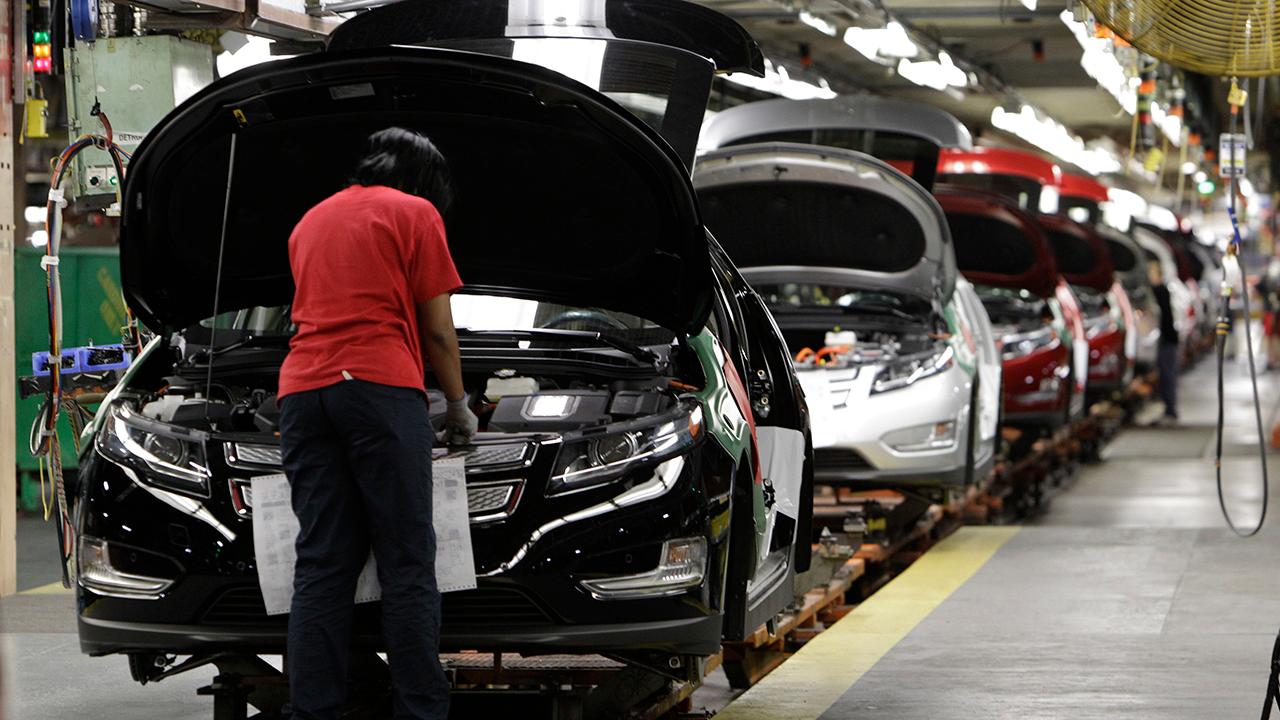Alliances between rival carmakers define future of auto industry
Automakers are forging alliances once thought unimaginable as the industry grapples with the high-cost of developing the technology that will define the future of driving while managing a slowdown in vehicle sales and increasingly stringent regulatory environments in key markets.
On top of those issues, trade uncertainty caused by President Trump’s aggressive negotiating tactics with Canada, Mexico, China and others is hanging over the future of complex production lines developed years before manufacturing begins.
The confluence of headwinds is weighing on share prices. General Motors and Ford's stock are both down 18 percent from last year, while Fiat Chrysler's is 5.5 percent lower.
| Ticker | Security | Last | Change | Change % |
|---|---|---|---|---|
| F | FORD MOTOR CO. | 13.80 | +0.08 | +0.58% |
| GM | GENERAL MOTORS CO. | 84.24 | +0.94 | +1.13% |
| FCAU | NO DATA AVAILABLE | - | - | - |
It's also bringing together unlikely partnerships, both between competitors and with Silicon Valley companies that are taking their first foray into the automotive industry. Google’s Waymo, for example, is outfitting Fiat Chrysler’s Pacifica minivans with its self-driving technology, while Volvo is providing Uber up to 24,000 vehicles for its own autonomous driving effort.
And even more mega-alliances could be on the way, experts say.
“We believe investors should prepare for potentially many more [partnerships] as car companies try to save tens of billions of costs in preparation of a new and challenging phase in global auto-making,” Morgan Stanley analyst Adam Jonas wrote in an April note.
The failed merger between Chrysler and Renault is the latest evidence of the need to partner to achieve scale and fill gaps in production. Renault would have had access to Chrysler’s lucrative Jeep and Ram pickup truck models, while the Italian-American carmaker could have capitalized on Renault’s work on autonomous and emissions-free vehicles.
After the transaction collapsed, Chrysler said it would team up with Amazon-backed Aurora Innovation to develop self-driving technology.
Among the largest new alliances is IONITY, a joint venture between BMW Group, Ford Motor Co., Mercedes-Benz parent Daimler AG, Volkswagen Group and others focused on electric vehicles.
Meanwhile, Ford and Volkswagen -- which recently ended a separate venture with Aurora -- are partnering on new commercial trucks and likely autonomous cars, as is Daimler and BMW.
General Motors is pooling resources with Honda on the self-driving front, which poured $2.75 billion into the Detroit firm’s Cruise Automation subsidiary. Rival Ford also recently said it would invest $500 million in electric truckmaker Rivian and produce a new vehicle using its proprietary platform.
And Toyota and Mazda in 2017 formed a joint venture to pursue electrification, including the pending opening of a $1.6 billion factory in Alabama. BMW is also working with Jaguar Land Rover on electric vehicles.
Underscoring the wave is the need to invest billions of dollars in necessary technology upgrades.
“Any new products or technologies, such as [electric vehicles] and autonomous vehicles, where there is a heavy financial outlay and the need to build up expertise presents an opportunity for collaboration,” said Anna-Marie Baisden, head of automotive at Fitch Solutions Macro Research.
CLICK HERE TO GET THE FOX BUSINESS APP
And as profits are squeezed by a slowdown in auto sales in key markets, companies are finding it necessary to pair up to share the large amount of funding needed to stay competitive.
In China, the world’s most lucrative market for the industry, sales fell 16.4 percent in May, according to the China Association of Automobile Manufacturers, the 11th straight month of declines.
It will also take years for carmakers to make money off of the burgeoning autonomous driving technology. Waymo is currently the only company with an operating self-driving rideshare fleet, though GM is expected to launch its own service this year.




















